- Home
- Machining techniques
- CNC Machining Services
- Cooperative supply services
- Designs
- Materials
- Finishing Services
- Shop
- Products
- Guide
- About Us
- Contact Us
2019.8.17
Precision machining is a method producing the precise components which are required as standalone items or parts of machinery. These components got to be machined consistent with good accuracy to suit their specific operation and match the machine or system they’re mounted in. Many alternative raw materials may be utilized in precision machining to make the ultimate items needed. We are going to detail 7 common raw materials used in precision machining processes.
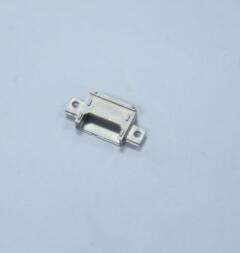
1.Stainless steel
Stainless steel is a common material used for precision machining due to its strength and corrosion resistance. Stainless steel has an advantage of being welded vacuum-tight. However, there are many kinds of stainless steel which can be treated differently. Stainless steel is a very versatile metal. The price, availability and machinability will be determined by the alloy or grade.
2.Aluminum
Aluminum has several features such as being light, simple to machine, non-magnetic, corrosion resistant and cheap. Moreover, aluminum has become a good option. However, aluminium welding has to be handled by good machining workshop in order to have the best result. Together with the features listed, aluminum can be machined to tight tolerances and plated with many materials to become tougher or more conductive as an inexpensive alternative to using stainless steel, steel or copper.
3.Brass
Free machining brass is another economical different material. Brass machining has features of being easily machined and non-sparking, having smooth and clean finishes and holding tolerances and threads well. Brass is better for complex components, and it mustn’t be utilized in semiconductor merchandise or a vacuum applications because of the zinc and tin within the material. Brass is often used for the die casting parts. has several features such as being light, simple to machine, non-magnetic, corrosion resistant and cheap. Moreover, aluminum has become a good option.
4.Titanium
Titanium is an extremely precious and useful metal for machining. Titanium has characteristics of light weights, good strength and metallic luster and be resistant to heat and corrosion, which makes titanium being suitable for a wide range of applications ranging from aviation to medical tools. However, titanium has disadvantages of being difficult to machine and expensive. However, one in every of the drawbacks of atomic number 22 is that it may be quite tough to machine and also the worth of the fabric. If you need to machine titanium parts, it’s better to choose a precision machining supplier that are experienced.
5.Steel
Steel is one of the most popular metals for every manufacturer because of its durability and strength. Steel is very similar to stainless steel according to the grade which has a specific purpose. Steel can be welded easily compared with other common materials. Steel are often used for auto, oil and gas industries. Steel is corrosion resistant even it is not plated on the surface.
6.Copper
Copper is another metal extremely prized for precision machining. Copper has the advantages of durability, versatility, electrical conductivity and natural corrosion resistance. Copper doesn’t hold tolerances just like aluminum, but it’s a better electrical conductor when it’s plated.
7.Basic Plastics
Plastics are cheap, non-metal and non-conductive and are used for machining. Plastics are inert and may be changed to suit various properties, and plastic machined components are used in many industries such as medical, industrial and scientific industries due to its smooth injection molding and very low cost.
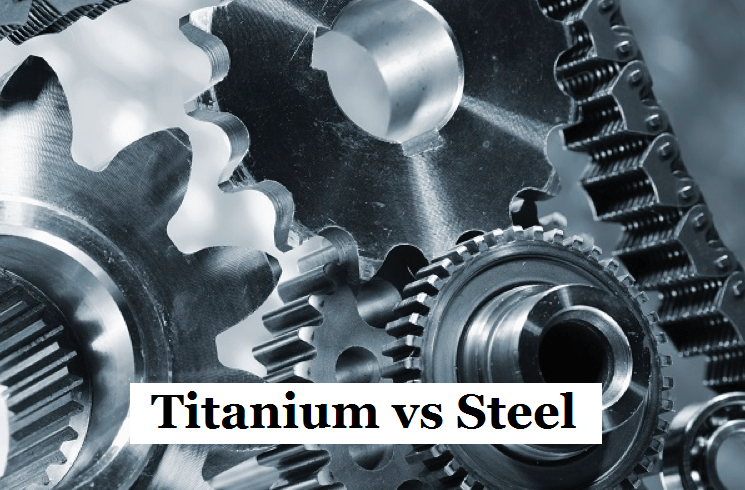 Titanium vs Steel, What’s the Difference | Titanium and Steel Comparison | CNCLATHING
Titanium vs Steel, What’s the Difference | Titanium and Steel Comparison | CNCLATHING
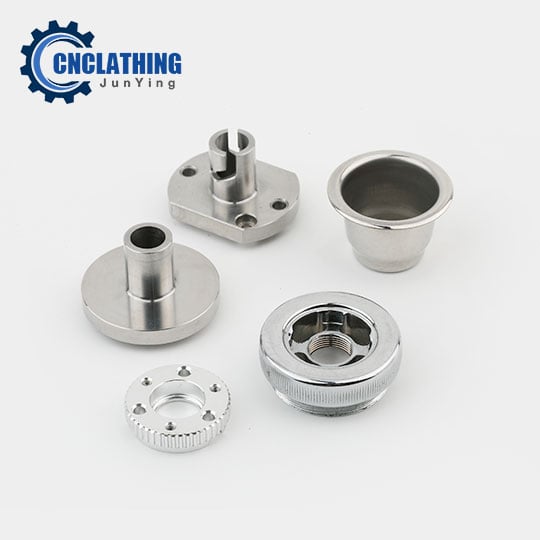 What is 304 Stainless Steel | Stainless Steel Comparison – Grade 304 vs Grades 316, 303, 201, 310, 409 and More
What is 304 Stainless Steel | Stainless Steel Comparison – Grade 304 vs Grades 316, 303, 201, 310, 409 and More
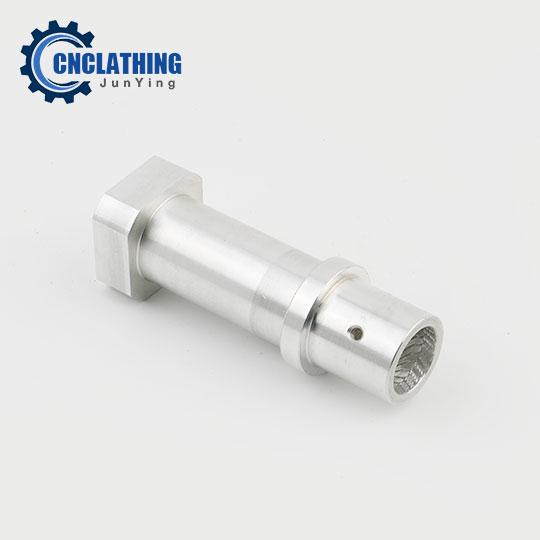 Titanium vs Aluminum, Which Metal to Choose – Comparison Between Titanium and Aluminum | CNCLATHING
Titanium vs Aluminum, Which Metal to Choose – Comparison Between Titanium and Aluminum | CNCLATHING
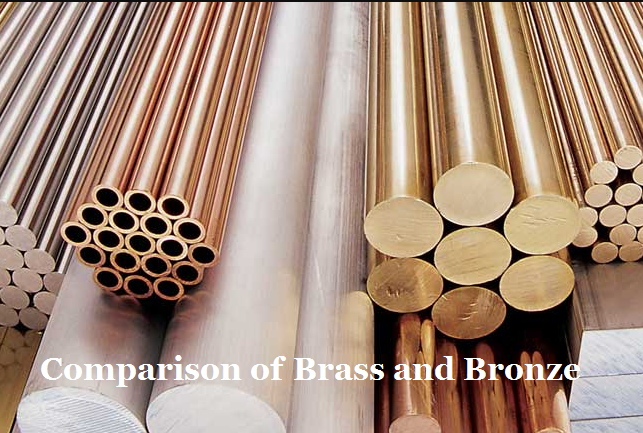 Comparison Between Brass and Bronze – Brass vs Bronze, What’s the Difference | CNCLATHING
Comparison Between Brass and Bronze – Brass vs Bronze, What’s the Difference | CNCLATHING
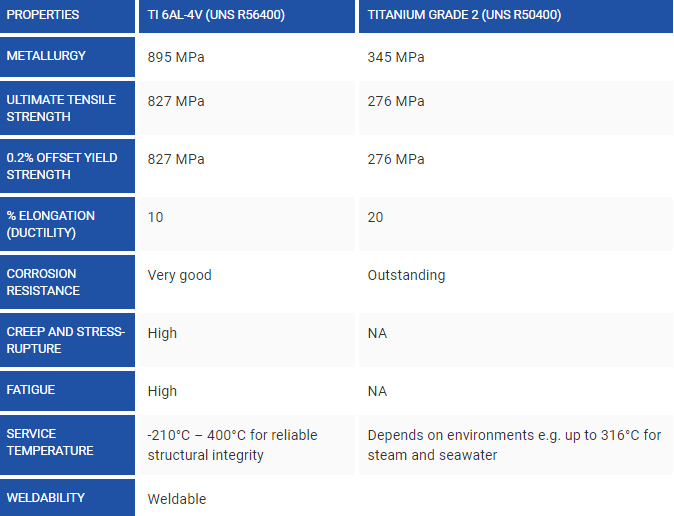 CNC Machining Titanium Grade 5: Ti 6Al 4V Properties, Price & Titanium Grade 2 vs Grade 5 | CNCLATHING
CNC Machining Titanium Grade 5: Ti 6Al 4V Properties, Price & Titanium Grade 2 vs Grade 5 | CNCLATHING
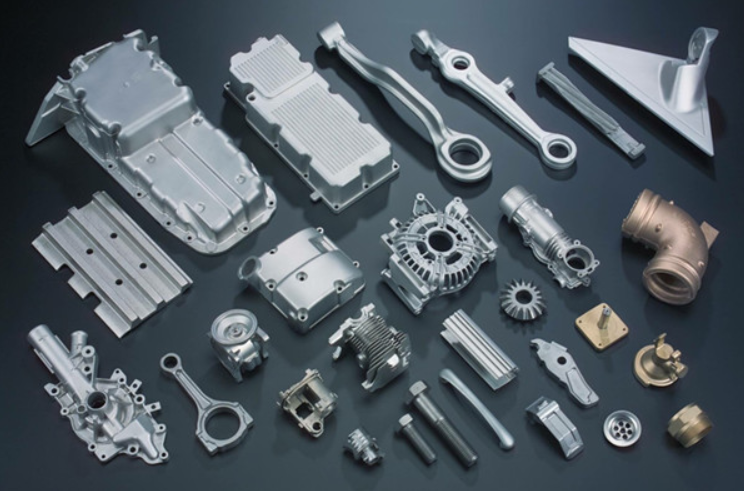 How to Polish Titanium Parts – CNC Machining Titanium Polishing & Buffing Finishing Service | CNCLATHING
How to Polish Titanium Parts – CNC Machining Titanium Polishing & Buffing Finishing Service | CNCLATHING
